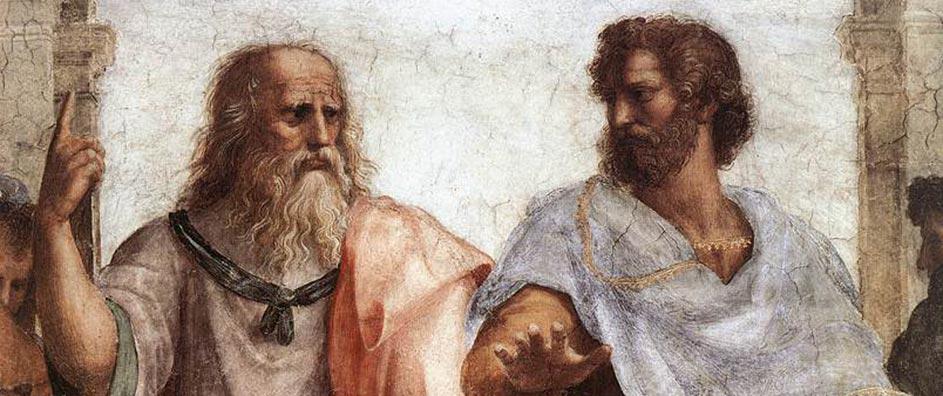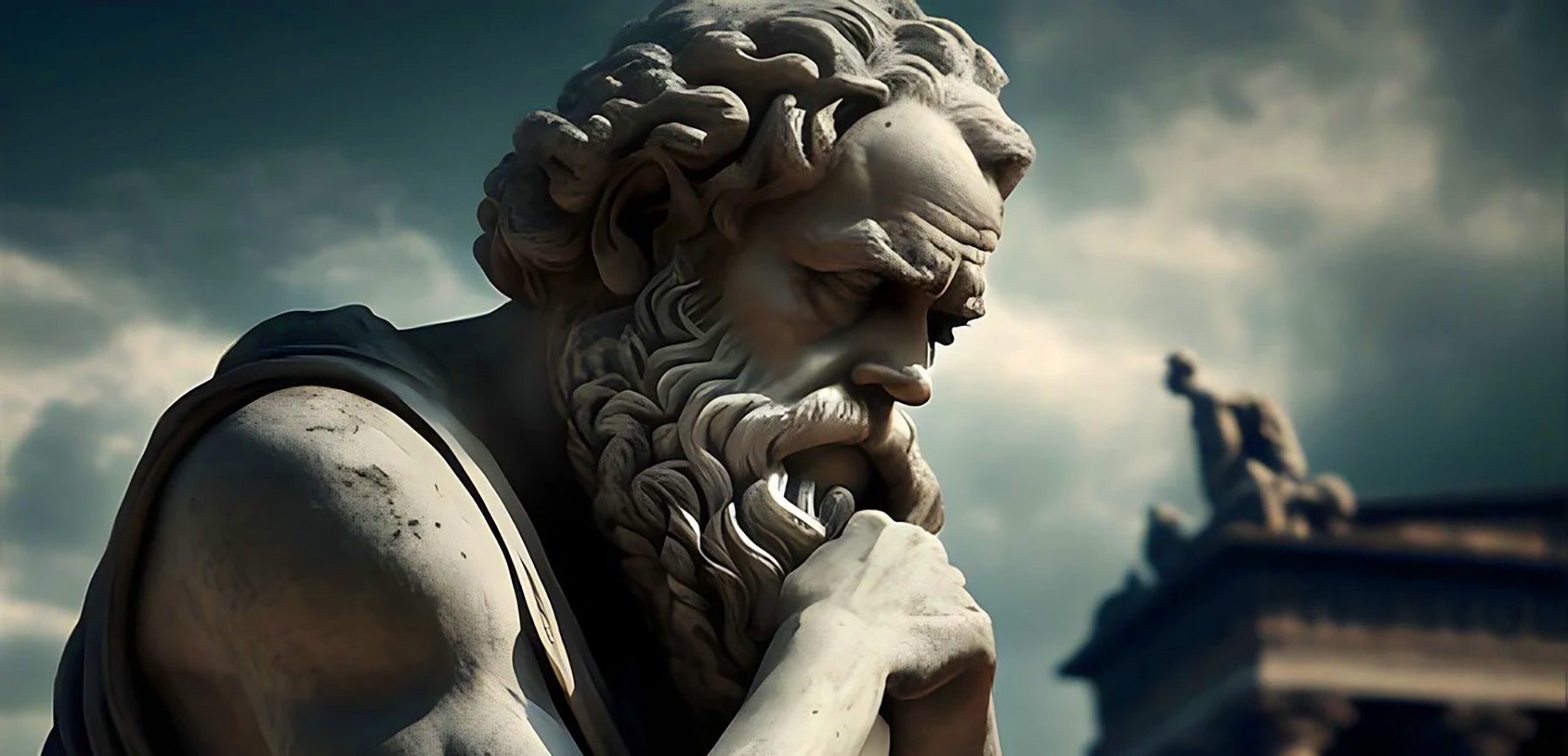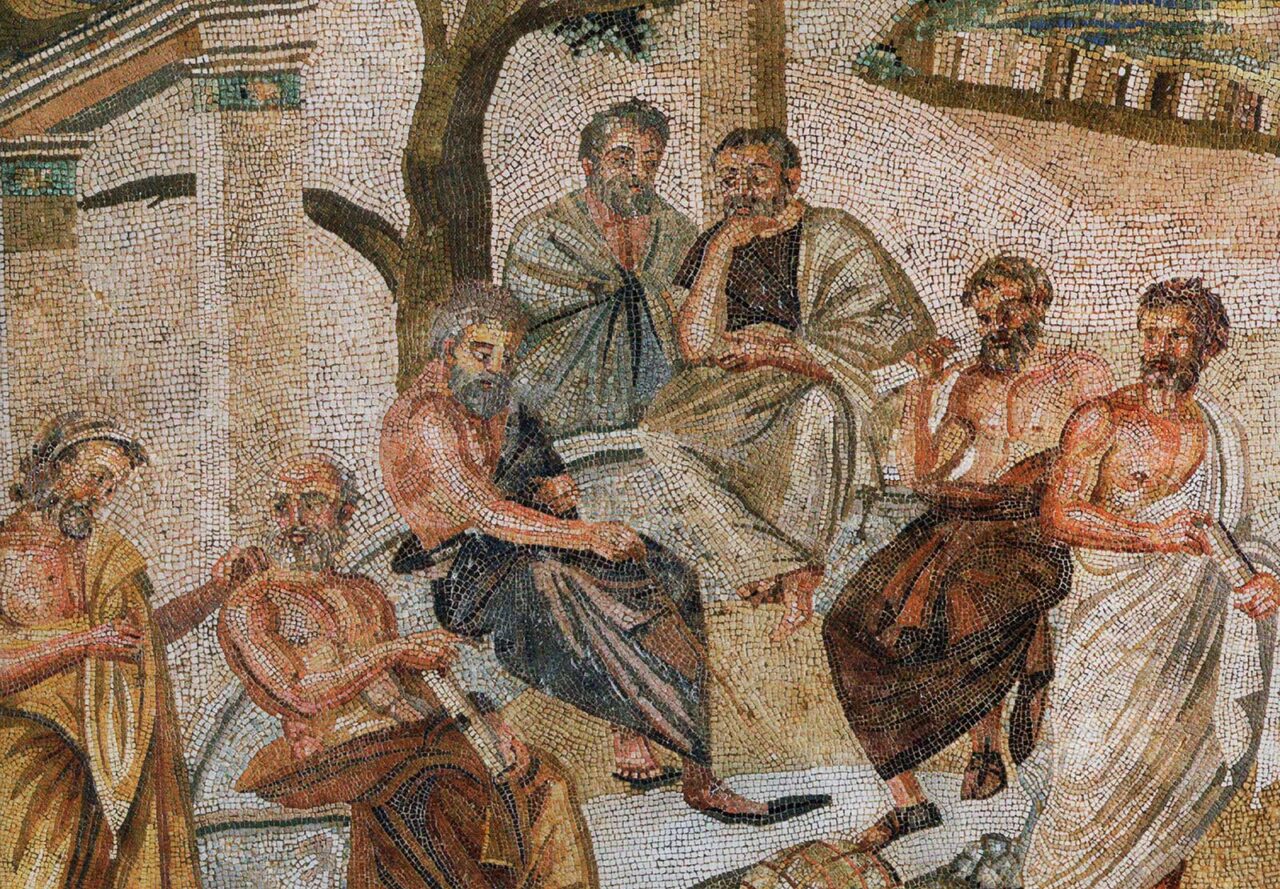“I cannot teach anybody anything. I can only make them think.”
― Socrates
These words, spoken by the venerable philosopher Socrates, encapsulate a guiding principle that transcends time, a philosophy that laid the foundation for one of history’s most profound mentor-mentee relationships. Mentorship has long been a cornerstone of intellectual and personal growth, shaping the destinies of both mentors and mentees.
As we journey back in time to ancient Athens, we encounter a partnership that not only ignited intellectual fires but also shaped the very contours of Western thought. It is within this dynamic mentorship that Socrates imparted wisdom that wasn’t merely absorbed but rather ignited the flames of inquiry and contemplation in the mind of his young disciple, Plato.
The philosophical discourse of antiquity reverberates with the names of these two luminaries—Socrates and Plato. Their journey as a mentor and a mentee not only shaped their philosophical perspectives but also left an indelible mark on the foundations of Western philosophy.
While both carved their own distinct paths in the annals of thought, their connection serves as a testament to the transformative power of mentorship. Socrates, with his unorthodox yet potent method of dialogue, breathed life into philosophical exploration. His philosophy was not to provide rote answers but to stimulate the faculties of reason and introspection within his pupils.
Plato, a young man of intellect and curiosity, was drawn to Socrates like a moth to a flame. What began as a quest for knowledge quickly blossomed into a profound relationship that would not only define Plato’s philosophy but also reshape the way humanity grapples with the pursuit of truth. It is in this unique mentorship that Socrates posed questions that peeled back the layers of the known world, inviting Plato to engage in a dance of intellect that transcended the constraints of conventional education.
Imagine the scene: the bustling agora, the heart of ancient Athenian life, where Socrates held court. Clad in plain robes, his appearance defied the grandiosity often associated with the learned. His teaching wasn’t built on pomp and circumstance but on the genuine desire to ignite the spark of curiosity within those willing to explore. Plato, at the cusp of his own intellectual journey, found himself captivated not by the allure of lavish teachings but by the enigmatic allure of a questioning mind.
It was through the Socratic method that Plato was led down the rabbit hole of thought. The philosopher didn’t hand over answers on a silver platter; he wielded questions like tools, crafting an intellectual landscape within which Plato could cultivate his own insights. This method was, in essence, a beacon that illuminated the path toward self-discovery. As Plato grappled with Socratic inquiries, his understanding of the world expanded, and with it, his own capacity to think critically and independently.
Let’s delve into the captivating mentorship journey of Socrates and Plato, exploring how their dynamic interactions fostered intellectual curiosity, critical thinking, and enduring wisdom.
Socrates: The Humble Mentor

Socrates, often referred to as the father of Western philosophy, was not only a profound thinker but also a humble mentor whose approach to teaching and guiding his disciples was as unconventional as it was enlightening. In a world where traditional pedagogical methods prevailed, Socrates stood as a beacon of intellectual exploration, challenging the norms of his time and setting the stage for a new era of philosophical inquiry.
Socratic Method: Cultivating Intellectual Curiosity
At the heart of Socrates’ mentorship was his unique teaching method, now famously known as the Socratic method. Rather than presenting his students with pre-determined answers, Socrates used a series of carefully crafted questions to lead them on a journey of self-discovery. He believed that knowledge wasn’t something to be merely transmitted, but a dynamic process that required active engagement and critical thinking.
Socrates’ method was not about spoon-feeding information, but fostering intellectual curiosity and encouraging his disciples to question their own assumptions and beliefs. Through a series of dialogues, he guided them to explore the depths of their understanding and confront the limitations of their knowledge. In doing so, he instilled in them a sense of humility—an awareness of the vastness of the unknown and the realization that true wisdom lay in acknowledging one’s own ignorance.
Plato’s early encounters with Socrates were marked by an intellectual dance, where Socrates acted as both mentor and provocateur. In the spirit of the Socratic method, Socrates would begin by posing a seemingly straightforward question to Plato, often about a concept as fundamental as “justice” or “virtue.”
Plato, like many of Socrates’ interlocutors, might have felt confident in his initial response. However, Socrates’ probing questions quickly revealed the complexity of these concepts and exposed the gaps in Plato’s understanding. Socrates would lead Plato down a winding path of inquiry, encouraging him to clarify, refine, and defend his ideas.
As Plato grappled with Socrates’ questions, he began to realize the limitations of his initial assumptions. The process of Socratic questioning prompted him to critically examine his beliefs, consider alternative viewpoints, and engage in a rigorous exploration of the topic at hand. This transformative journey of inquiry and self-discovery formed the crux of the Socratic method.
Socratic Irony: Unmasking Assumptions
Another hallmark of Socrates’ approach was his use of Socratic irony—a technique in which he would feign ignorance or ask seemingly innocuous questions to expose the contradictions and inconsistencies in his interlocutors’ arguments. This not only highlighted the gaps in their understanding but also encouraged them to dig deeper and refine their positions. By dismantling flawed arguments, Socrates taught his students the importance of critical thinking and the necessity of examining beliefs from all angles.
In one of their dialogues, Socrates might initiate a conversation with Plato on the subject of justice. Plato, influenced by his own intellectual journey under Socrates’ guidance, developed a perspective on justice that aligns with his mentor’s teachings. He might assert that justice entails treating individuals fairly and upholding moral principles.
Socrates, employing Socratic irony, could respond with a seemingly simple question: “Plato, what if justice is simply doing whatever is in the best interest of the stronger party?” This question, delivered with an air of earnest curiosity, contradicts Plato’s deeply ingrained beliefs about justice.
Plato, initially taken aback by Socrates’ counterintuitive stance, might respond with surprise, defending his understanding of justice as rooted in morality and fairness. Socrates, in his role as the ironic questioner, would press on, presenting hypothetical scenarios that challenge Plato’s assumptions and coaxing him to consider alternative perspectives.
Unmasking Assumptions and Cultivating Wisdom
As the dialogue unfolds, Plato finds himself engaged in a profound exploration of the concept of justice. Socratic irony serves as a tool to unveil the hidden assumptions that underlie his beliefs. By prompting Plato to defend his viewpoint against counterarguments and hypothetical scenarios, Socrates encourages him to critically examine the foundations of his understanding.
Through this process, Plato discovers that his initial definition of justice, while admirable, might have been oversimplified. The Socratic dialogue exposes the complexities of justice and encourages Plato to engage in a deeper inquiry. The exchange isn’t about providing a definitive answer but about fostering intellectual growth and the ability to engage with complexity.
Legacy of Humble Mentorship
Socrates’ legacy as a humble mentor serves as a timeless reminder that true mentorship is not about showcasing knowledge or authority, but about fostering an environment of exploration, growth, and self-discovery. His legacy transcends centuries, reminding us that the path to wisdom involves acknowledging what we don’t know, nurturing a curious spirit, and guiding others toward their own enlightenment.
When Plato encountered Socrates, he was a young and impressionable aspiring philosopher. Drawn by Socrates’ unconventional teaching methods and the depth of his philosophical inquiries, Plato embarked on a journey that would forever alter the trajectory of his intellectual life.
Socrates’ mentorship of Plato was rooted in humility—a humility that was not characterized by self-deprecation but by a genuine acknowledgment of the vastness of knowledge and the limitations of individual understanding. Socrates didn’t assume the role of a traditional teacher imparting knowledge from a position of authority. Instead, he approached mentorship as a shared exploration of ideas, inviting his disciples to participate in the process of discovery.
Under Socrates’ guidance, Plato was exposed to a radical approach to philosophy. Socrates’ relentless pursuit of truth, coupled with his admission of ignorance, had a profound impact on Plato’s worldview. This humility of acknowledging what one doesn’t know and embracing a stance of perpetual inquiry became a cornerstone of Plato’s own philosophical approach.
The Perpetual Flame of Inquiry
Plato internalized the essence of Socratic humility, and it permeated his entire philosophical journey. This humility manifested in his dialogues, where characters engage in Socratic questioning to uncover deeper truths. One can observe how Plato’s writing mirrors the Socratic method, emphasizing the process of dialogue and self-examination over dogmatic pronouncements.
The legacy of humble mentorship is evident in Plato’s most famous work, “The Republic.” The work is not a definitive treatise on governance but a dynamic exploration of justice, virtue, and the ideal state. Plato, influenced by Socratic humility, understood that the quest for wisdom is a perpetual journey rather than a destination.
Shaping Philosophical Thought
Plato’s philosophical contributions echo through the ages, serving as a testament to the enduring impact of Socratic mentorship. His dialogues, informed by the spirit of inquiry and intellectual humility, continue to inspire thinkers, educators, and philosophers worldwide.
Moreover, the legacy of Socratic humility has transcended the realm of philosophy, influencing the very nature of mentorship itself. This approach underscores the importance of creating an environment that encourages critical thinking, exploration, and self-discovery. It invites mentees to be active participants in their own learning, shaping their perspectives through dialogue and inquiry.
Food for Thought for Leaders

The historic link of mentor and mentee continues to radiate wisdom through the years in the arena of leadership, where complexities abound and principles alter. Socrates and Plato’s mentorship is an endless supply of lessons for leaders navigating the modern world. Plato’s avenues of growth were illuminated by Socrates, the philosophical luminary, and these roads remain illuminated for today’s leaders to follow.
Fostering critical thinking
“The unexamined life is not worth living.”
Socrates’ emphasis on critical thinking reverberates through the ages, offering leaders a profound lesson in fostering growth within their mentees. By employing a method of inquiry that stimulates independent thought, Socrates molded the intellectual landscape of his renowned student, Plato.
In the mentor-mentee relationship between Socrates and Plato, the Socratic method was the vessel through which critical thinking was nurtured. Socrates didn’t provide Plato with ready-made answers; instead, he ignited the flames of contemplation through a series of incisive questions.
Encouraging mentees to ponder, question, and analyze situations independently doesn’t just enhance their problem-solving skills; it nurtures resilience, adaptability, and the ability to thrive in an ever-changing landscape. Socrates’ legacy reminds leaders that their role isn’t merely to provide solutions but to ignite the flames of curiosity that lead to transformative critical thinking—the cornerstone of growth and innovation.
Cultivating humility
“The only true wisdom is in knowing you know nothing.”
Socrates, despite his reputation as a sage, embodied humility by acknowledging his lack of absolute knowledge. Plato engages in a philosophical discourse with Socrates, sharing his ideas on justice or virtue. Instead of asserting his own viewpoints with unwavering authority, Socrates approaches the conversation with a sense of humility. He engages in open dialogue, admitting the possibility of being mistaken, and demonstrates a genuine curiosity to explore ideas.
This humility not only encourages Plato to engage more openly but also creates an environment where mentees feel safe admitting their own uncertainties. In today’s leadership landscape, this lesson rings true. Leaders who humbly acknowledge their own limitations pave the way for mentees to feel comfortable expressing their doubts and engaging in open discussions.
Embracing humility sets the tone for a culture of continuous learning. When leaders demonstrate that they are open to new ideas, feedback, and personal growth, they create an environment where growth is celebrated rather than feared. This attitude permeates through the organization, fostering innovation, collaboration, and a sense of community.
Facilitating self-discovery
“Education is the kindling of a flame, not the filling of a vessel.”
Socrates didn’t bestow knowledge upon Plato as an authority figure would. Instead, he asked probing questions, encouraging Plato to explore the depths of his own understanding. This approach created an environment where knowledge was not a passive transfer but an active pursuit.
Similarly, leaders should resist the temptation to provide ready-made solutions. By guiding mentees to uncover insights themselves, leaders foster a sense of ownership over their growth. This empowerment not only deepens understanding but also instills confidence and resilience—the cornerstones of effective leadership.
As leaders, we must remember that our role isn’t to merely fill the vessels of our mentees; it’s to kindle the flames of curiosity, fueling the journey of self-discovery. Just as Socrates illuminated the path for Plato, leaders who guide, question, and inspire lead mentees to uncover their own brilliance and navigate their unique pathways to growth.
Modeling intellectual curiosity
“Great leaders are great readers and learners. They absorb the wisdom of others and complement it with their own experiences and failures, thus accelerating their growth.”
Plato, under Socrates’ tutelage, witnessed the pursuit of knowledge firsthand. He observed Socrates’ unwavering commitment to seeking truth through dialogue and examination. This inspired Plato to not only absorb Socratic wisdom but to also embark on his own intellectual journey, capturing his insights in timeless dialogues. This mutual exchange of ideas demonstrated the essence of the quote—how great leaders merge external wisdom with personal experiences.
Great leaders today can cultivate a culture of intellectual curiosity. By demonstrating an unceasing hunger for knowledge, embracing a diversity of perspectives, and openly learning from failures, leaders inspire their mentees to follow suit. This emulation not only accelerates individual growth but also engenders a culture of continuous learning and transformative leadership.
Nurturing ethical leadership
“I am not an Athenian or a Greek, but a citizen of the world.”
Socrates’ focus on ethics and virtue was not confined to the confines of a particular society or culture. Instead, he championed principles that transcended local norms, emphasizing the importance of a moral compass that guided actions and decisions. This commitment to ethical conduct laid the foundation for Plato’s exploration of justice, virtue, and the ideal state.
Plato, under Socrates’ guidance, imbibed these principles. The dialogues between Socrates and his disciples, including Plato, often revolved around ethical dilemmas and the pursuit of the greater good. Socrates’ unwavering dedication to truth and virtue spurred Plato to delve into the depths of ethical philosophy, crafting insights that would shape his philosophical legacy.
By adhering to ethical principles, leaders create a culture of integrity, accountability, and transparency. This resonates with Socrates’ vision of global citizenship—a philosophy that goes beyond self-interest to embrace the betterment of society as a whole. Just as Socrates’ focus on ethics guided Plato’s intellectual journey, leaders who prioritize ethical leadership empower their mentees to be not only proficient professionals but also responsible global citizens, contributing to a more just and virtuous world.
The mentor-mentee relationship between Socrates and Plato offers leaders a profound blueprint for nurturing growth, fostering critical thinking, and inspiring a commitment to lifelong learning. By incorporating these lessons into their leadership approach, leaders can empower their mentees to thrive and leave a lasting positive impact on the organization and beyond.
https://study.com/learn/lesson/socratic-irony-examples-concept.html
https://filmlifestyle.com/socratic-irony/
https://www.leaderonomics.com/articles/leadership/lessons-from-socrates
https://www.history.com/topics/ancient-greece/plato
https://media.bahaiteachings.org/2017/08/justifying-god-socrates-plato-republic__v943x396__.jpeg
Written By: Jimmy Jain
Edited By: Afreen Fatima
Society of Design Thinking Professionals









